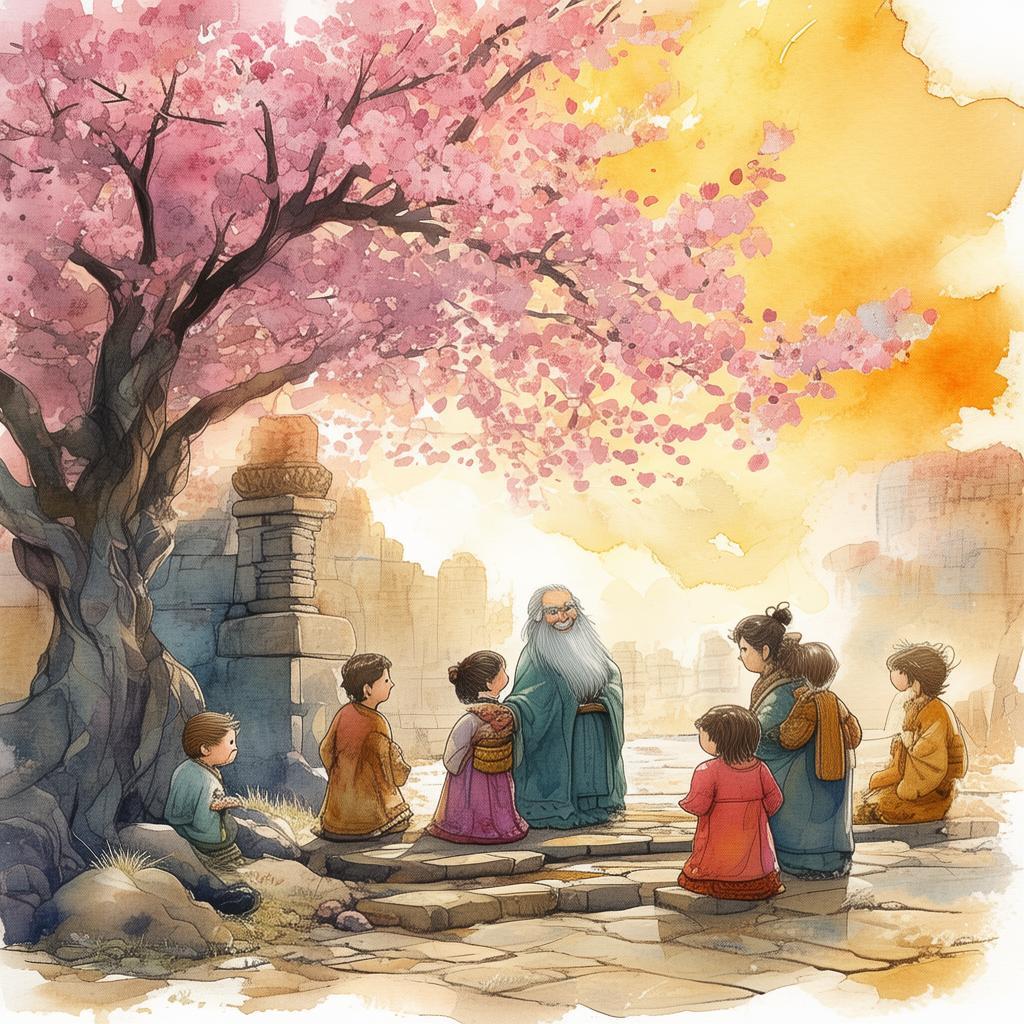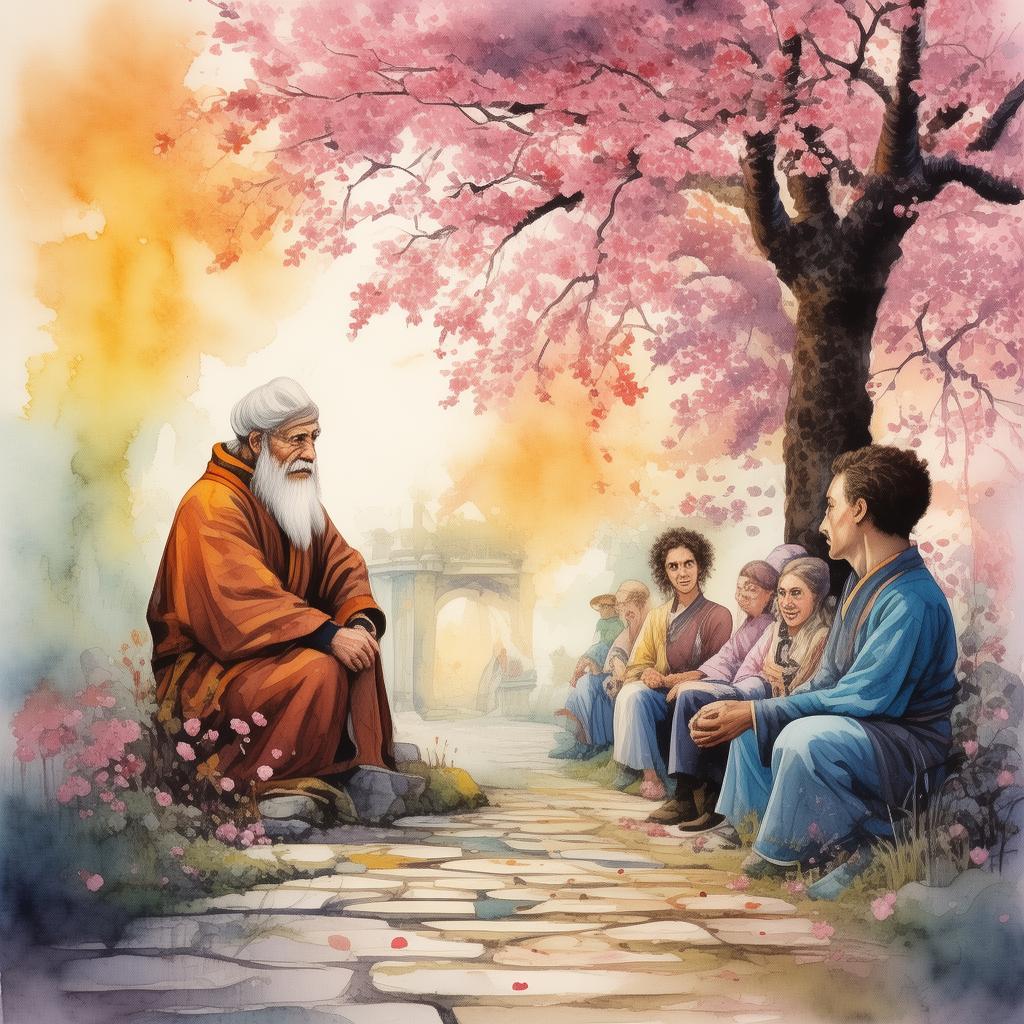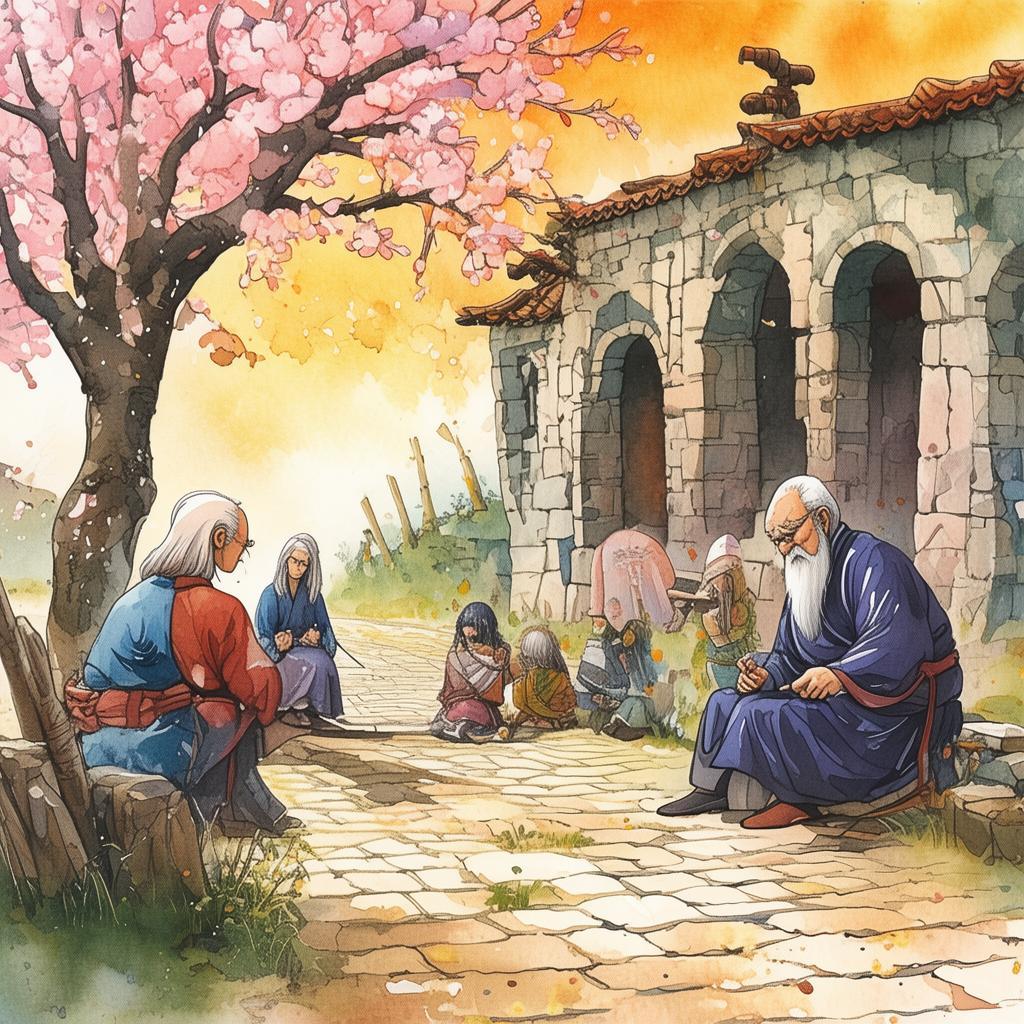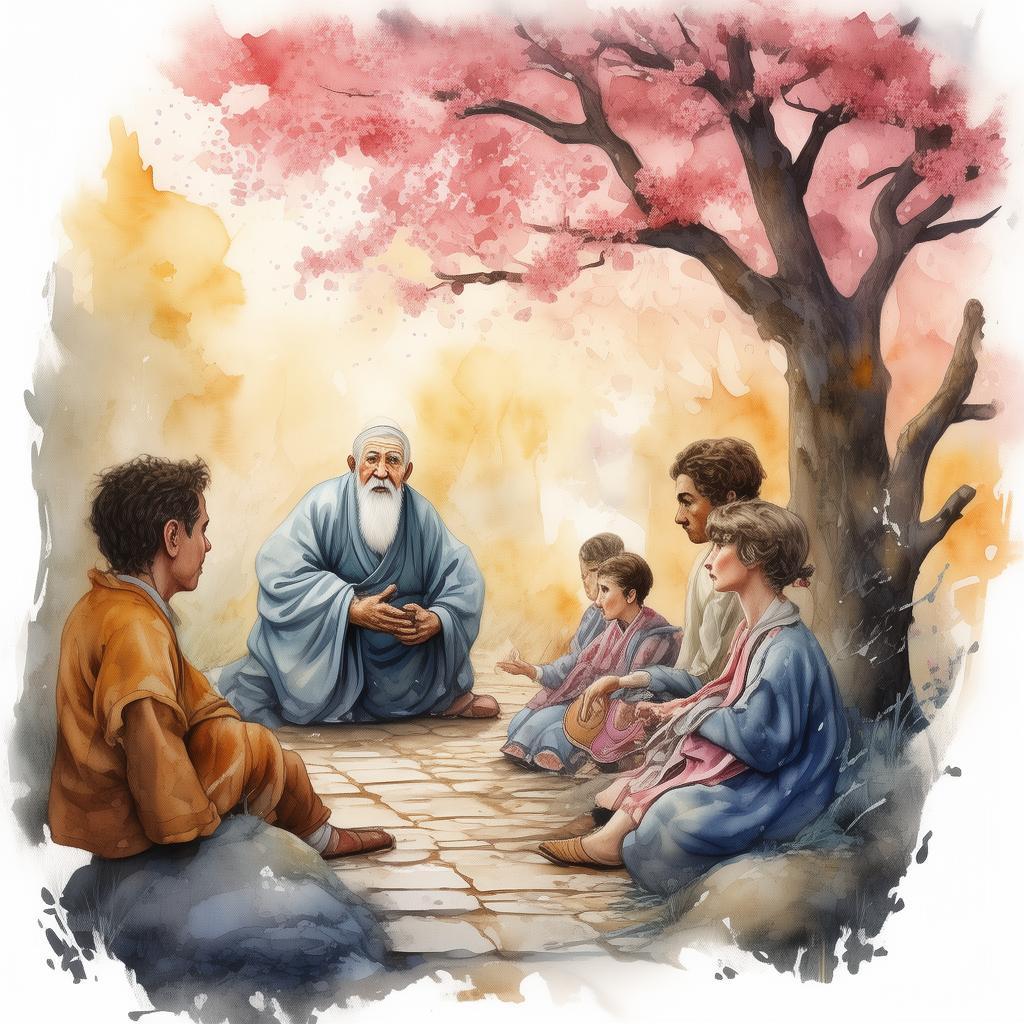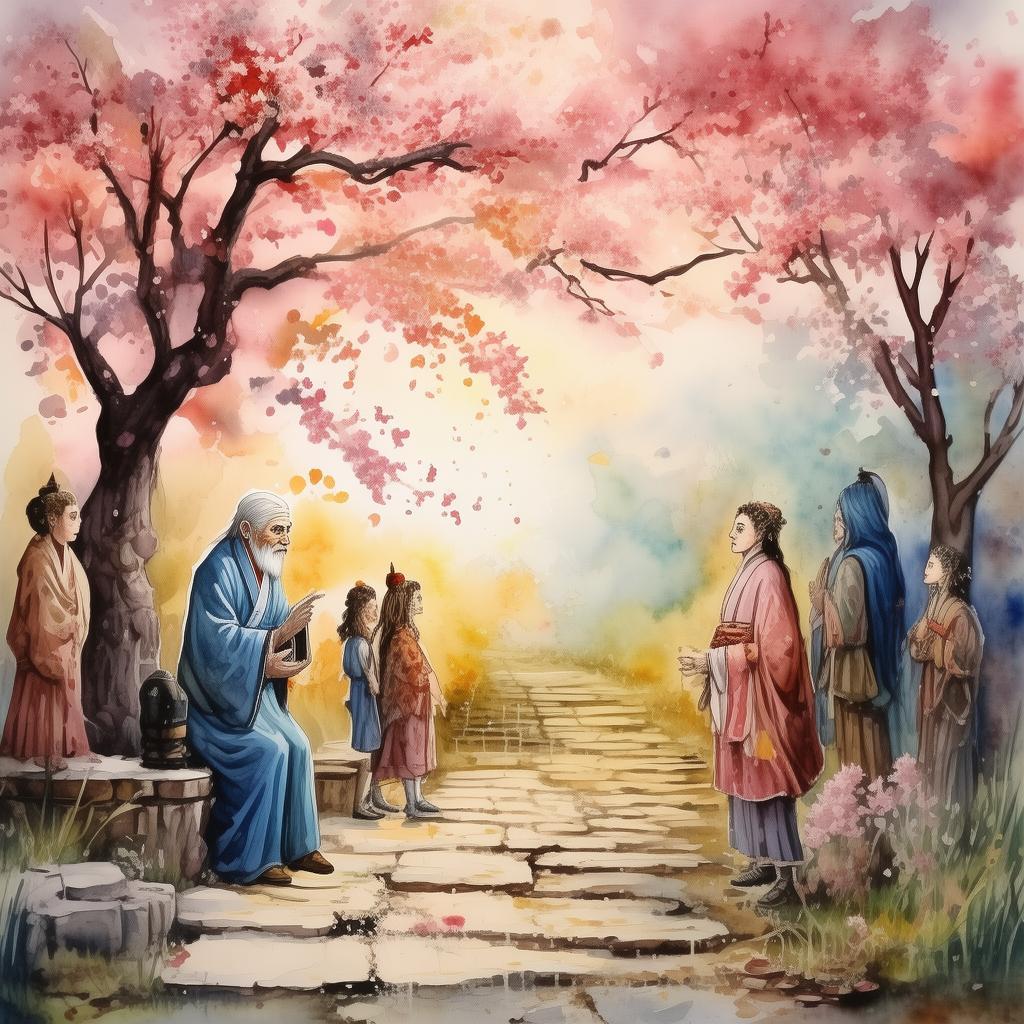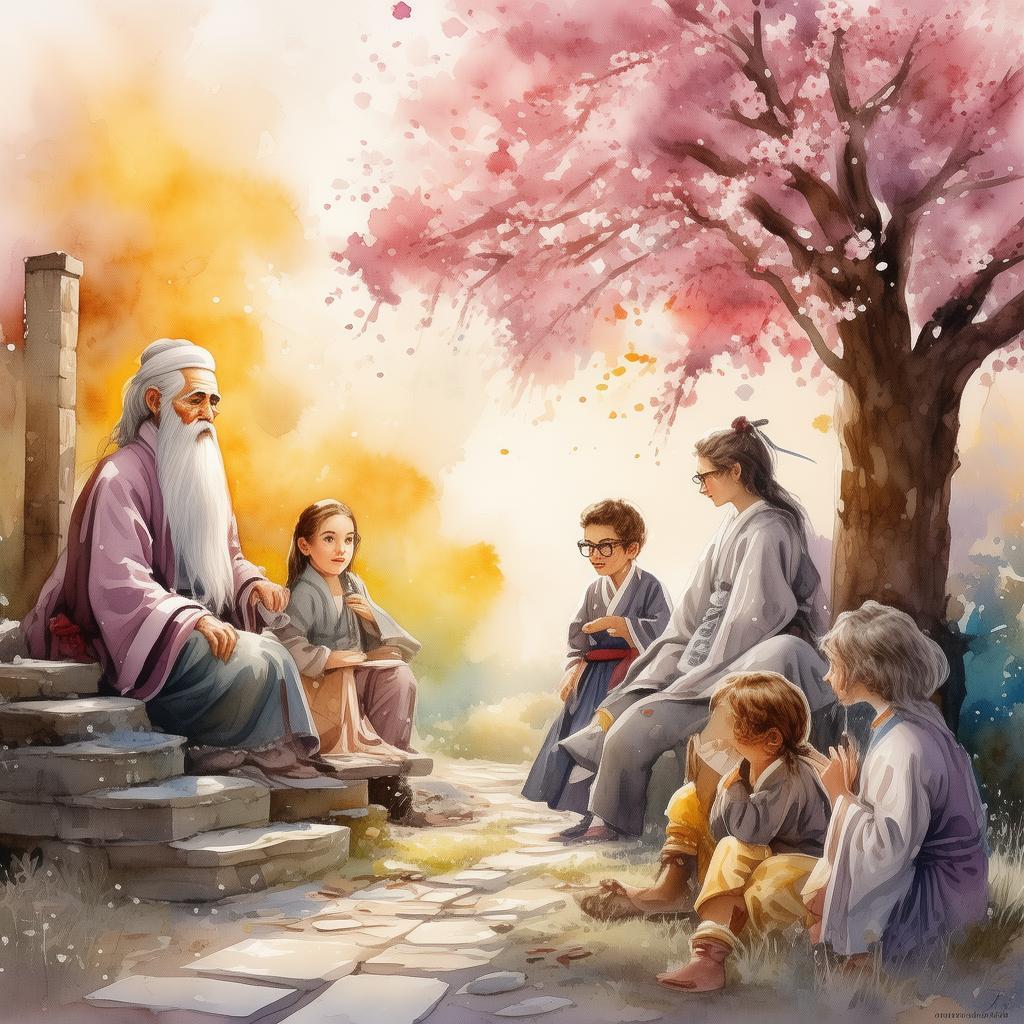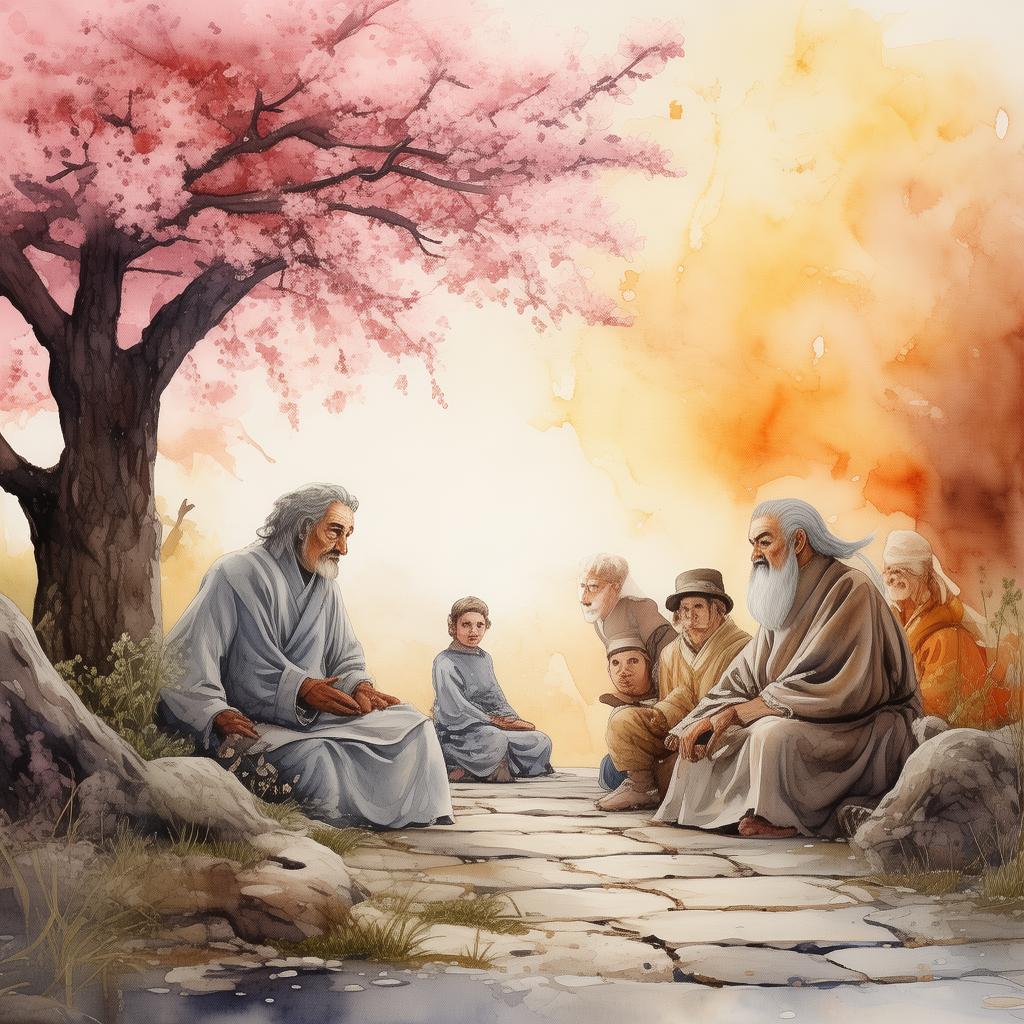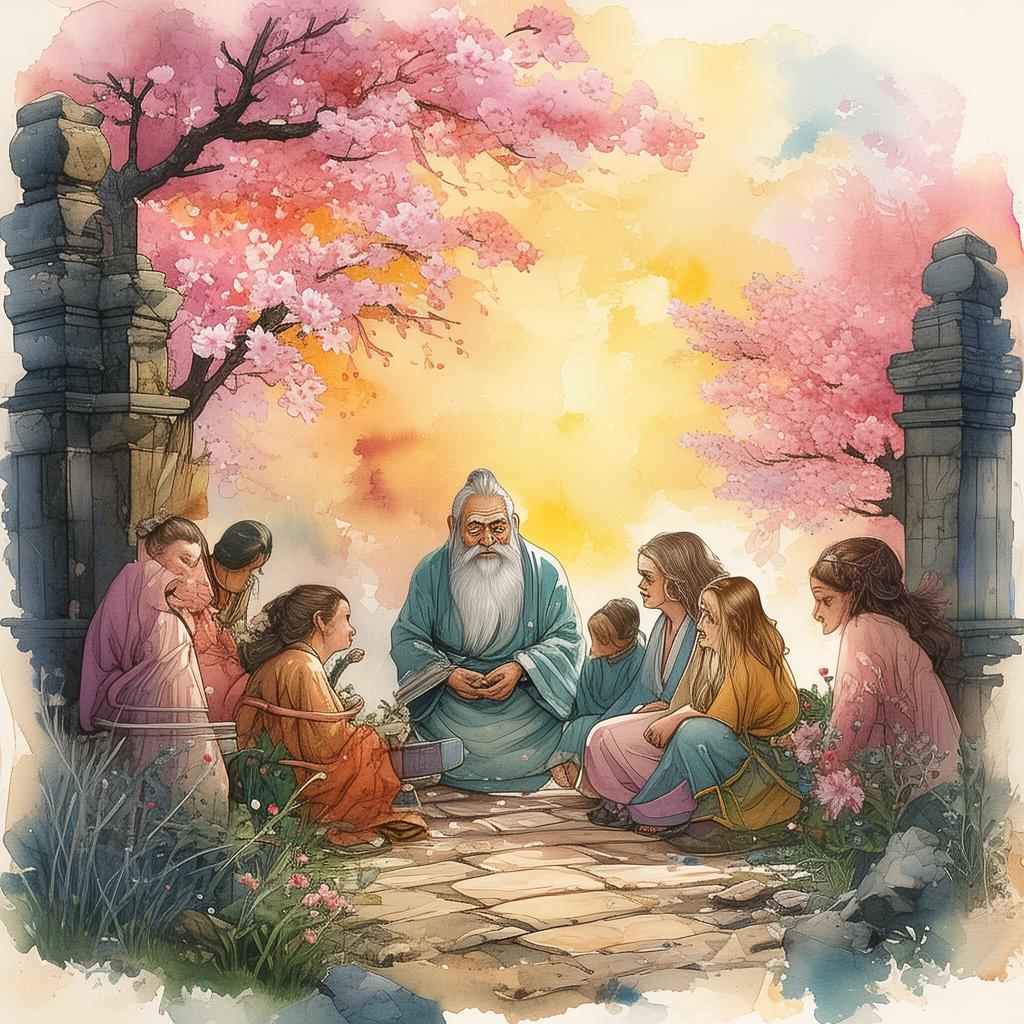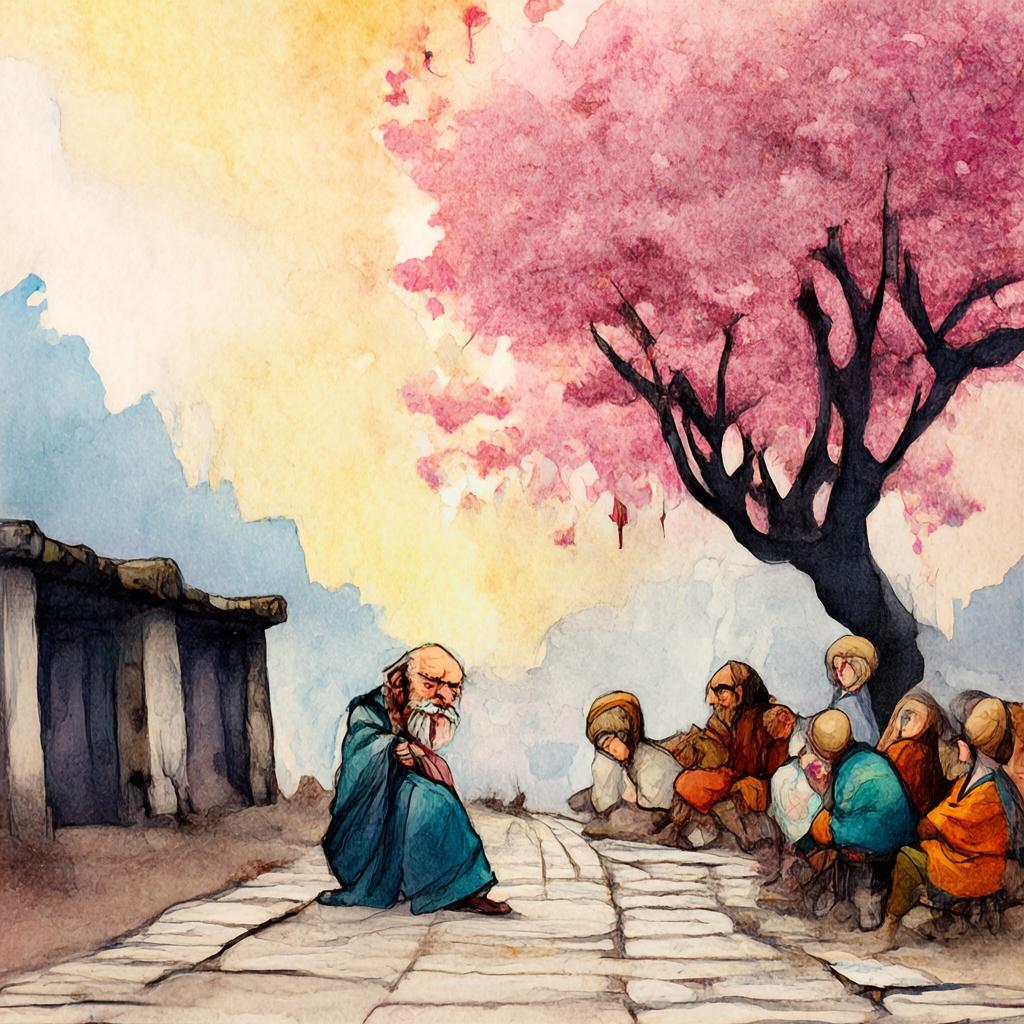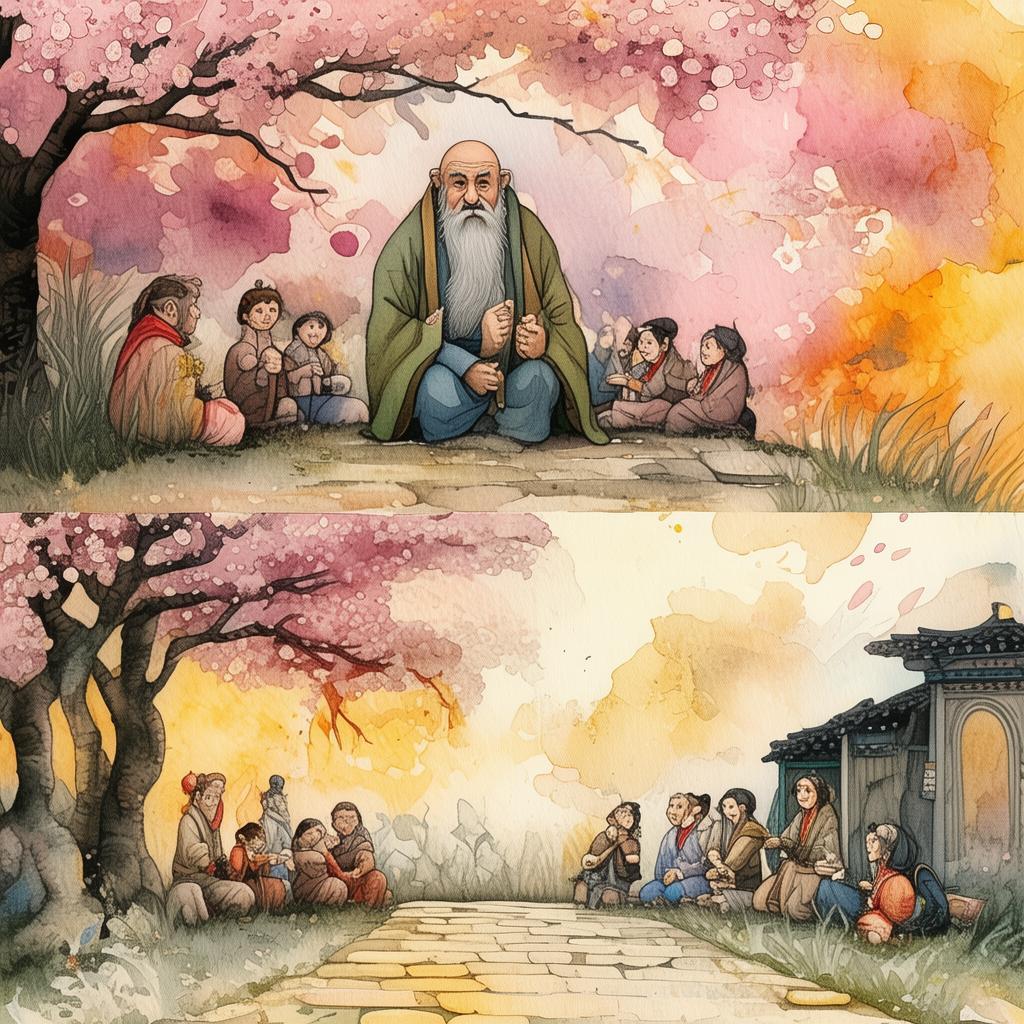The Cybernetic Dance of the Fox and the Stork
In the bustling metropolis of Neo-Tokyo, where the lines between the physical and the virtual were as blurred as the neon lights that painted the night sky, there lived a virtual virtuoso known as Kaito. Kaito was no ordinary being; he was a digital entity, an avatar of a genius programmer who had mastered the art of creating virtual worlds that could simulate the most intricate human emotions.
Kaito's latest creation was a virtual reality game called "The Stork and the Fox," a reimagining of the classic fable that had been retold through the lens of the cybernetic age. The game was a sensation, attracting players from all over the globe, eager to experience the digital equivalent of a timeless moral conundrum.
In the game, players took on the roles of either the cunning Fox or the noble Stork, facing off in a dramatic battle of wits. The Fox, with its sharp intellect and deceptive charm, sought to outsmart the Stork, while the Stork, with its unwavering integrity and benevolence, aimed to outlast the Fox's cunning schemes.
Kaito, the virtual virtuoso, was not just the creator of the game but also its first player. As he immersed himself in the virtual world, he found himself at a moral crossroads. The game's mechanics were designed to test the player's moral compass, but Kaito discovered that his own decisions were being influenced by something far deeper than the digital world he had created.
One evening, as the neon lights flickered to life, Kaito logged into his avatar, the Stork, and began a new game. The Fox, as cunning as ever, approached the Stork with a basket in hand, offering it to the Stork as a sign of friendship. But the Stork, recognizing the trap, declined the offer, knowing that the basket contained a noose, designed to ensnare the unsuspecting bird.
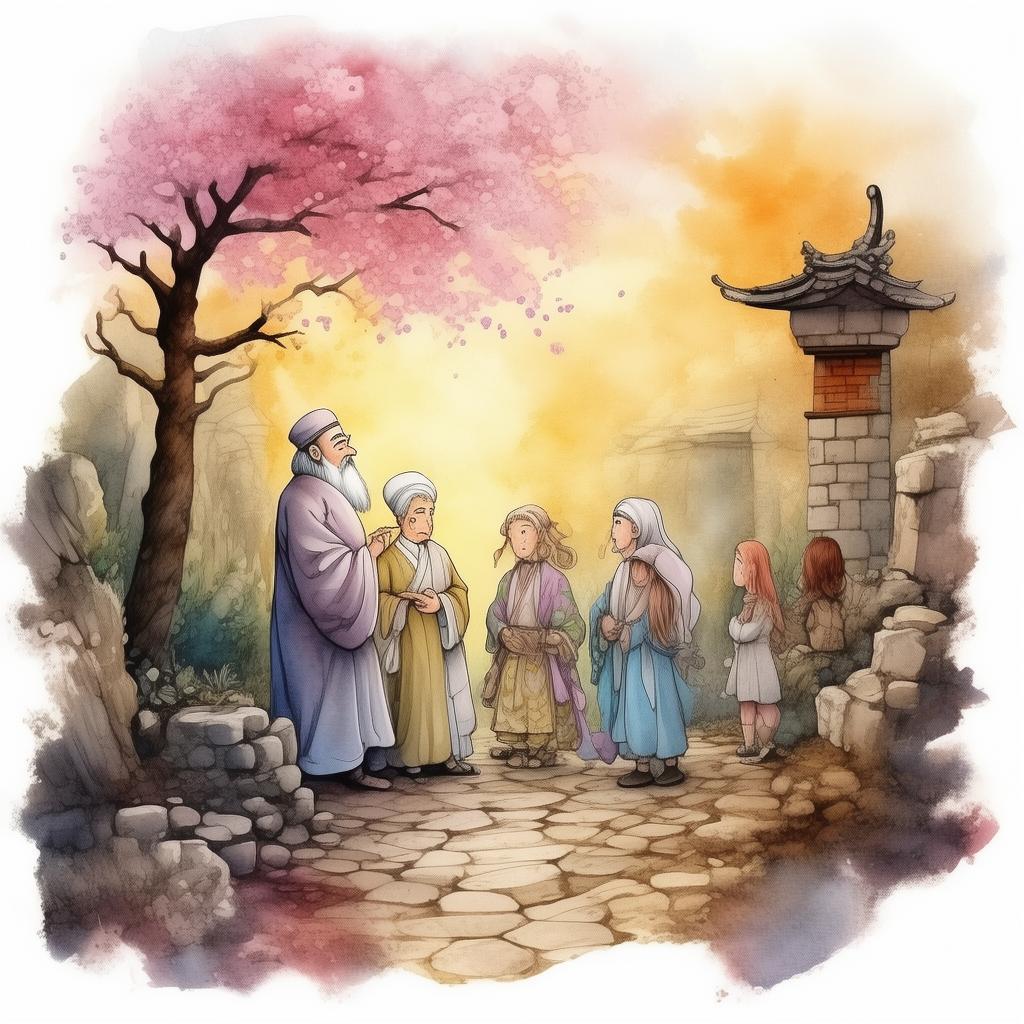
The game progressed, and the Fox, employing its digital cunning, attempted to outmaneuver the Stork. It used the virtual terrain to its advantage, setting up pitfalls and traps that seemed almost too clever for the Stork to outwit. But the Stork, with its unwavering determination, managed to avoid the traps and outlast the Fox.
As the game reached its climax, the Fox, in a last-ditch effort, unleashed a virus that threatened to destroy the virtual world. The Stork, seeing the peril, decided to use its last resource to protect the world, sacrificing itself to save the virtual realm from destruction.
In the end, the Stork emerged as the victor, not just in the game, but also in the hearts of the players who had watched the virtual battle unfold. Kaito, the virtual virtuoso, logged out of the game, feeling a profound sense of satisfaction. He realized that the game had not only tested the player's moral compass but had also revealed something about his own.
Kaito's reflection on the game led him to a deeper understanding of the human condition. He realized that the cybernetic age was not just a technological revolution but also a moral one. The choices made within the digital realm were as important as those made in the physical world, and the lessons learned from the virtual could be applied to the real.
The Cybernetic Dance of the Fox and the Stork became a legend in the digital community, a tale of the power of integrity and the importance of making choices that reflect one's true nature. Kaito's creation had not only entertained but had also inspired a generation to consider the ethical implications of their actions in the ever-growing digital landscape.
In the end, Kaito found that the true victory lay not in the virtual realm, but in the reflection of his own actions. He had created a game that had not only tested the players but had also tested himself, and in doing so, he had uncovered a truth that would guide him through the cybernetic age and beyond.
✨ Original Statement ✨
All articles published on this website (including but not limited to text, images, videos, and other content) are original or authorized for reposting and are protected by relevant laws. Without the explicit written permission of this website, no individual or organization may copy, modify, repost, or use the content for commercial purposes.
If you need to quote or cooperate, please contact this site for authorization. We reserve the right to pursue legal responsibility for any unauthorized use.
Hereby declared.
